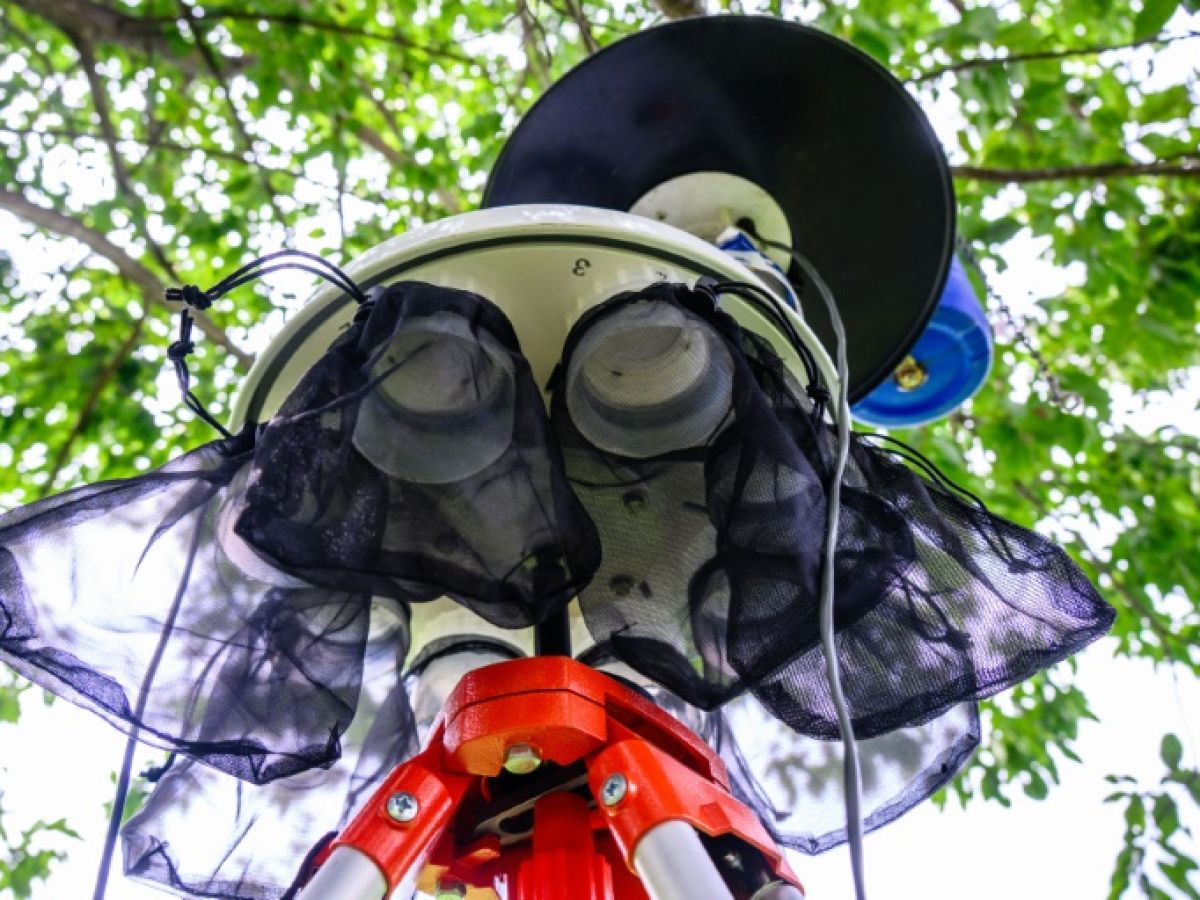Just south of the heavily fortified inter-Korean border, a surveillance system operates 24 hours a day. Not to detect missiles or troop movements, but to catch malaria-carrying mosquitoes from the north.
Despite its highly advanced health system and decades of efforts, South Korea has never managed to be certified malaria-free by the World Health Organization (WHO). This is because of the mosquitoes that proliferate on its border with North Korea.
Seoul issued its first-ever national malaria alert this year. Scientists say climate change, which is bringing warmer springs and more rain, will bring more malaria-carrying mosquitoes to the peninsula if the two Koreas do not cooperate against the scourge.

The heart of the problem is the four-kilometre-wide Demilitarised Zone (DMZ) that runs along the 250-kilometre border, a buffer zone established at the end of the Korean conflict in 1953 to separate the two countries, which are still officially at war.
Densely forested and marshy, infested with minefields, the DMZ has been virtually untouched by human activity for more than 70 years.
It has become a sanctuary for wildlife - migratory birds, deer, reptiles and even Asian black bears - but also a paradise for mosquitoes, which have a range of up to 12 km.

The DMZ is populated by "many wild animals that serve as blood sources for mosquitoes," which also have large expanses of stagnant water to lay their eggs, said Kim Hyun-woo, a scientist at the Korea Disease Control and Prevention Agency.
In 1993, South Korea thought it had eradicated malaria, with no local cases reported for a decade. But that year, a soldier serving along the DMZ was infected. Since then, the disease has been on the rise. A total of 747 cases were reported in 2023, compared to 420 in 2022.
– “Republic of diseases” –
"The DMZ is not an area where pest control can be effective," Kim Dong-gun, a professor of environmental biology at Sahmyook University in Seoul, told AFP.

As the mosquito population increases, more soldiers in the border area are bitten, "leading to continued cases of malaria in the region," he added.
Seoul has installed 76 mosquito detectors across the country, mainly near the DMZ. From one of them, visited by AFP journalists in the border town of Paju, the North Korean flag can be seen waving in the distance.
In North Korea, around 4,500 cases have been recorded by the WHO between 2021 and 2022.

"North Korea is a republic of infectious diseases," Choi Jung-hun, a North Korean doctor who defected to South Korea in 2011, told AFP. He said he had treated many malaria patients during his career in the North, including a soldier who had been based near the DMZ.
Dr Choi said a lack of modern medical equipment prevents early and accurate diagnosis of malaria, malnutrition and poor sanitation leave people vulnerable, and the number of cases could explode after floods hit the north of the country this summer.
– Obsolete shared toilets –
"North Korea still relies on an outdated communal outdoor toilet system. As a result, when there is a flood, fecal water overflows and all sorts of infectious diseases spread rapidly," Dr. Choi said.

Over the past decade, 901,300 South Koreans with malaria have been infected near the DMZ, according to official figures.
Shin Seo-a, 36, contracted malaria in 2022 without remembering a single mosquito bite.
"I felt like I was being fried in a really hot pan," she recalls, describing unbearable pain and a high fever. "I even begged a nurse to knock me out."
Malaria in the Korean Peninsula is caused by the parasite Plasmodium Vivax, which is considered less deadly than Plasmodium Falciparum, which is widespread in Africa.
But after malaria, Ms. Shin still contracted nontuberculous mycobacterium, a lung infection that typically strikes people with weakened immune systems.

"Malaria is really a terrifying disease," she said, hoping efforts will be made to eliminate it from her country.
But with North Korea declaring the South its "main enemy," cutting off all contact with Seoul and repeatedly rejecting offers of foreign humanitarian aid, the prospect of cooperation to eradicate malaria seems remote.


